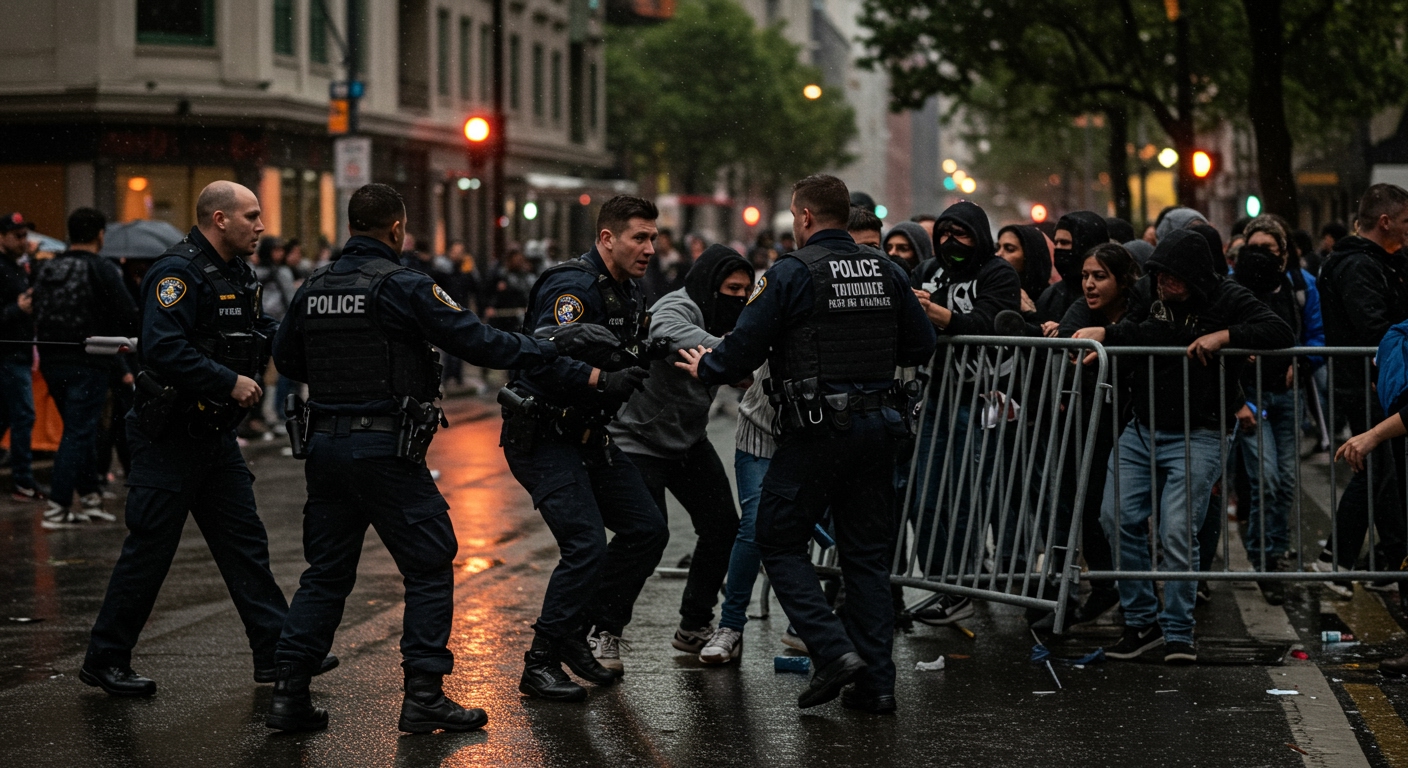Authorities Detain Over 20 at Demonstration
Authorities have detained more than 20 individuals during a protest rally held in support of Palestine Action, a group that has been formally designated by the government as a terror organization. The widespread arrests underscore the stringent legal framework now surrounding the group, highlighting the significant implications for those who publicly express solidarity or are found to be associated with its activities.
The protest, which occurred [Specific location and date are not provided in the original summary, requiring reporting based solely on the fact of the event], drew participants expressing various viewpoints related to the Israeli-Palestinian conflict and the actions of Palestine Action. However, the focus of law enforcement action centred specifically on individuals demonstrating support for the now-banned entity.
The Legal Standing of Palestine Action
The critical context for these arrests lies in the official designation of Palestine Action as a terror group. This classification is a profound legal step, altering the relationship of the state and its citizens towards the organization.
Under the relevant anti-terrorism legislation, such a designation carries severe penalties. Specifically, the law stipulates that membership of, or support for, the organisation is a criminal offence. This is not merely a civil or administrative restriction; it is a matter for the criminal justice system.
Criminal Implications of Support
The consequence of being found guilty of this criminal offence is significant. As explicitly stated in the legal framework cited, the crime of supporting or being a member of Palestine Action is punishable by jail. This provision serves as a clear deterrent and a legal basis for actions taken against the group’s network and its publicly declared supporters.
The term “support” in this legal context can be interpreted broadly, potentially encompassing various actions from financial contributions and logistical assistance to public advocacy and membership. While the specifics of what constitutes “support” sufficient for prosecution can be complex and depend on legal interpretation, the law’s intent is to dismantle and discourage association with designated entities.
Background on the Ban
The process leading to the designation of an organization as a terror group typically involves a thorough review by government security agencies and legal departments. Such decisions are often based on evidence suggesting the group’s involvement in or planning of activities deemed to be terrorist in nature or posing a threat to national security. [The original summary does not provide specific reasons for Palestine Action’s designation, only the fact of it. A responsible journalistic approach reports the fact of the designation and its legal consequences as provided, without speculating on the unstated reasons.]
The designation places the group in a category alongside other organizations deemed to pose a significant threat, subjecting it to various legal restrictions, including asset freezing, travel bans for members, and, crucially, the criminalization of support.
The Dynamics of the Protest
The decision by individuals to protest in support of Palestine Action despite the known legal consequences highlights a complex interplay between political activism, freedom of expression, and national security laws. Proponents of such protests often argue that they are exercising fundamental rights to assembly and speech, potentially challenging the basis or fairness of the ban itself.
Conversely, authorities maintain that enforcing laws against supporting designated terror groups is essential for public safety and national security. The arrests at the protest demonstrate the state’s resolve to uphold the ban and its associated penalties, signalling that public displays of support are subject to legal action.
Legal Process Following Arrests
Following the arrests of more than 20 individuals, the standard legal process will typically involve detention, questioning, and potential charging. Those arrested for supporting a banned organisation face the prospect of prosecution, where the state would need to present evidence demonstrating that their actions constituted “support” as defined by the law.
The potential penalties, as noted, include imprisonment, emphasizing the gravity with which the legal system views violations related to designated terror groups. The outcome for each individual arrested will depend on the specific circumstances of their alleged actions and the evidence presented by the prosecution.
Broader Implications
The events at the protest and the subsequent arrests carry broader implications for political activism and civil liberties in the context of anti-terrorism legislation. They raise questions about the balance between allowing citizens to express dissenting views or support for controversial causes and the government’s power to prohibit association with organizations deemed a threat.
For groups and individuals involved in activism related to international conflicts, this case serves as a stark reminder of the potential legal boundaries they face, particularly when organizations involved have been subjected to official bans and terror designations.
The situation remains fluid, with the legal proceedings against the arrested individuals expected to shed further light on the application and enforcement of the law regarding support for Palestine Action. As this case develops, it will likely be closely watched by civil liberties advocates, legal experts, and those concerned with the scope of anti-terrorism laws.





